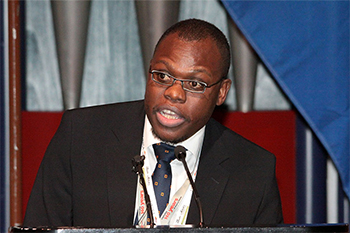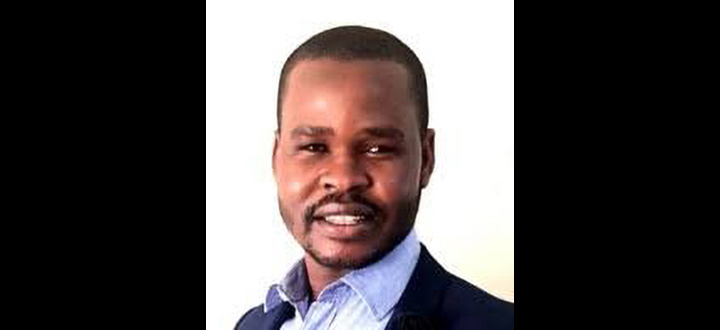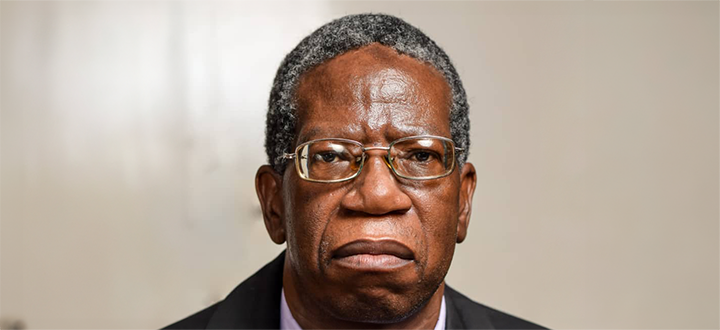Leading change
Africa remains in chains
The second-largest continent in the world, Africa has also become the world’s second most populous one. As the late Nobel laureate Wangari Maathai put it: “Africa is one of the richest continents on the planet and yet most African countries remain poor.” Besides significant deposits of precious minerals and metals, the continent boasts a very youthful population, increasingly high levels of internet connectivity, emergence of new innovation hubs and was until recently home to many of the fastest-growing economies in the world.

Prof Vusi Gumede, head of the Thabo Mbeki African Leadership Institute at Unisa, shares his thoughts on the matter.
However, the above high points have been blighted by several socioeconomic and political challenges. Although the politics of the Cold War contributed in no small measure to the instability that bedevilled the continent from the 1960s to the end of the Cold War in the early 1990s, the colonial policy of divide and rule – or define and rule, as Professor Mahmood Mamdani would put it – the arbitrary demarcation of borders, the reification of tribes as a marker of identity and the struggle for control over scarce economic opportunities have combined to weaken state capacity. Needless to say, the very notion of a post-colonial state is problematic.
In more than five centuries of encounters with other parts of the world, Africa’s experience has been marked by exploitation, oppression, subjugation and alteration of the distinct identities of the people through a long process of psychological distortions. Both the Arab and European slave trades, which lasted for centuries, effectively truncated the process of population growth, distorted economic development and militarised the whole continent through the promotion of intertribal wars, as Walter Rodney described. The imposition of imperial domination and colonial intrusion also disrupted the process of economic development. As Claude Ake explained, the introduction of wage labour and the constraints to pay taxes resulted in the loss of opportunity to pass through agrarian revolution which could have been a precursor for industrial revolution in Africa.
Performing below potential
Despite the recent optimism and euphoria about “Africa rising”, lack of fundamental transformation in the structures of the economies in Africa has resulted in the fast-growing economies of the early 2000s returning to the throes of debts, poverty and inequality. For many decades, the parlous and low state of economic growth has hampered technological development and limited the capacity of African countries to build military hardware – African economies are in effect performing below their potential. In a world that has continued to be defined by principles of realism, state-centric power and influence, the lack of economic and military power has kept African countries at the margin of global influence. A classic example of this being that no African country is a permanent member of the UN Security Council today. Neither are any of the main global economic institutions headed by an African.
While the West remains stubbornly stuck in its supremacist position of privilege through which it maintains the status quo by rights, African leaders have been complicit in the marginalisation of the continent. Lack of understanding of the question of identity and common positionality in the global hierarchy of power have continued to make Africans work at cross purposes against one another at multilateral levels. Rather than speak with one voice and negotiate as a block, African leaders either prefer allegiance with their former colonial masters or resort to their facile national patriotic base when issues of international diplomacy and negotiations are involved.
The few instances where African leaders have taken bold initiatives to advance the interests of the continent, especially under the presidencies of Thabo Mbeki and Olusegun Obasanjo as well as a few others before them, have either suffered discontinuity or outright suppression. The leadership deficit, especially in relation to thought leadership, is widening. These leaders had tried to take the baton from earlier African nationalists who ensured the political independence of the continent.
It is encouraging though that there is new momentum of engagement with Africa, especially from non-traditional partners (in Asia and Latin America). Even though this engagement is also motivated by the desire for raw materials and markets, it presents a new opportunity for Africa to redefine its mode of engagement with the rest of the world. This will require crafting a new strategy that is underpinned by the principle of Pan-Africanism and Africa’s renaissance. It would be important that Africa confronts the issue of a socioeconomic model that can work better for the continent. Understanding the history of the continent and why it remains in chains would help greatly.
It is in this context that we look forward to Professor Mamdani’s lecture in this year’s Thabo Mbeki Africa Day Lecture. Mamdani will lecture on “Africa and the changing world” on May 26 at the University of SA. As has become tradition, a debate on his lecture will take place thereafter. The lecture is preceded by the seventh African Unity for Renaissance Conference and celebrations surrounding Africa Day.
*By Prof Vusi Gumede, head of the Thabo Mbeki African Leadership Institute at Unisa.
Publish date: 2017-05-26 00:00:00.0


 Unisa honours Dr OK Matsepe's enduring legacy
Unisa honours Dr OK Matsepe's enduring legacy
 Great strides towards concretising Unisa-PMC partnership
Great strides towards concretising Unisa-PMC partnership
 Mental health among men in the workplace needs more attention
Mental health among men in the workplace needs more attention
 "I owe everything to Unisa and my late supervisor's priceless mentoring"
"I owe everything to Unisa and my late supervisor's priceless mentoring"
 Majikijela - a queer scholar raising homosexuality awareness through his work
Majikijela - a queer scholar raising homosexuality awareness through his work